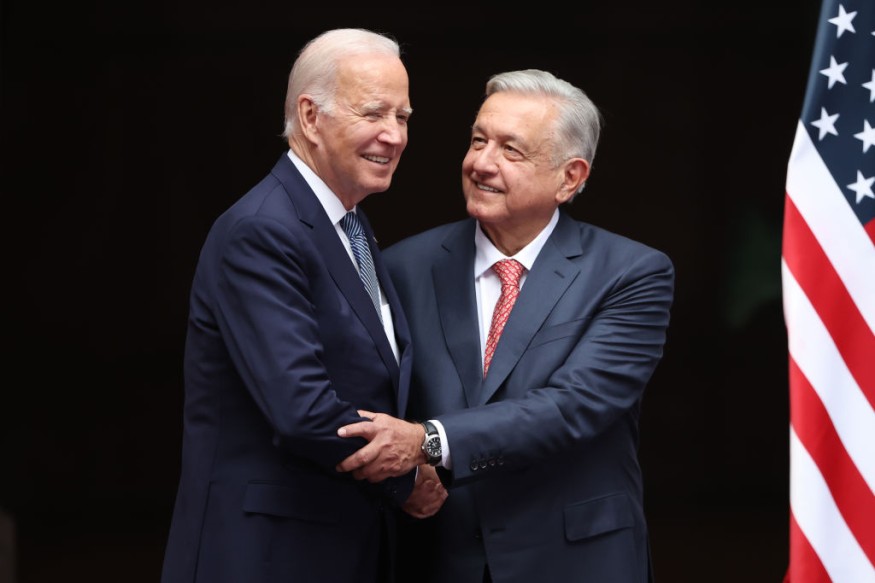Mexico to Discuss Migration With Joe Biden Ahead of Title 42 Expiration

Ahead of a significant US policy change that may result in the surge of migrants at the US-Mexico border, Mexican President Andres Manuel Lopez Obrador announced Monday his intention to discuss migration with US President Joe Biden this week.
According to Reuters, Lopez Obrador said he would hold a video call with Biden on Tuesday, which is expected to discuss not only the pressing issue of migration but also the deadly synthetic opioid fentanyl and economic collaboration.
The US is set to end Title 42 on May 1. Since 2020, the policy has allowed US authorities to quickly expel migrants trying to cross the US-Mexico border, including asylum seekers, to use the COVID-19 pandemic as a justification.
The move to end the Trump-era immigration policy is expected to drive more migrants to the US.-Mexico border, and many are concerned about this.
Despite Lopez Obrador's announcement, White House spokesperson Karine Jean-Pierre refused to confirm the call to the reporters.
When asked about the policy change, the Mexican president advised migrants to pursue lawful means of entering the US and urged the US government to process visa applications promptly.
"We're making the respectful suggestion... that they don't take too long to give out permits," Andres Manuel Lopez Obrador noted.
READ NEXT : US Mexico Border Cause of Fire
The Title 42
Title 42, a policy implemented by then-President Donald Trump in March 2020 to curb the spread of COVID-19, has come under intense scrutiny from human rights activists.
Al Jazeera reported that since then, it drew condemnation from rights groups after the policy has been used to quickly expel people over 2.8 million times.
As Title 42 ends Thursday, which coincides with the end of the federal COVID-19 public health emergency, the Biden administration has announced plans to deploy additional troops to the US-Mexico border.
However, rights groups continued to raise concerns as Washington has also implemented measures such as expedited screenings and deportations to discourage border crossings.
Critics argued that these measures violate the rights of migrants and fail to address the root causes of migration, such as poverty, violence, and political instability in their countries of origin.
US-Mexico Border After Title 42 Expiration
According to BBC, as the expiration of Title 42 looms, both the US and Mexico are preparing for a surge of illegal border crossings. US officials anticipate that the number of arrivals this month could double to around 10,000 per day compared to 5,000 in March.
The expiration of Title 42, which denied many asylum seekers the chance to apply for asylum in the US, means that the US will return to its previous policy of verifying the legitimacy of asylum claims before deporting applicants.
To speed up the process, the US has proposed new policies to "expedite" the asylum interview process, aiming to assess applications within 24 hours and deport applicants within days or weeks.
Unlawful border crossers who are apprehended and deported will be "presumed ineligible for asylum" and barred from reentering the US for at least five years, according to Customs and Border Protection (CBP).
To address the root causes of illegal border crossings, the Biden administration has sought to open legal immigration channels to reduce the number of people attempting to cross the border illegally.
The administration has committed to accepting up to 100,000 immigrants from Honduras, Guatemala, and El Salvador with families already living in the US.
On the other hand, Mexico has pledged to accept 30,000 migrants from Cuba, Haiti, Nicaragua, and Venezuela per month as part of a deal struck on May 2.
READ MORE : Mexico Gets Puppy from Turkey
This is owned by Latin Post.
Written by: Bert Hoover
WATCH: US-Mexico Border Towns Prepare for End of Title 42 Policy - From CBS News
Subscribe to Latin Post!
Sign up for our free newsletter for the Latest coverage!














